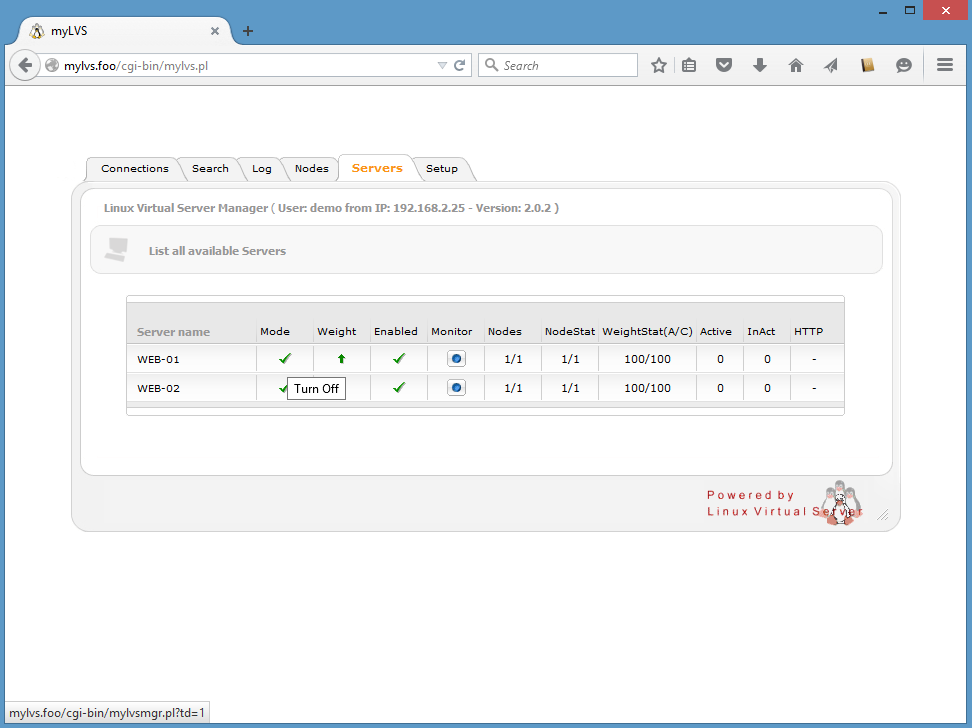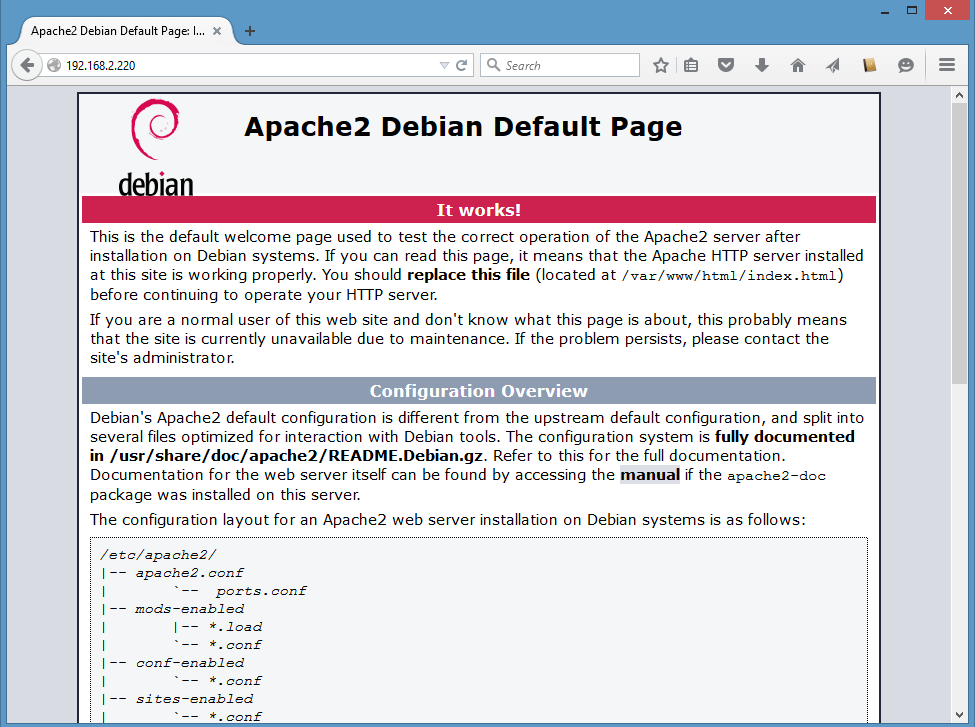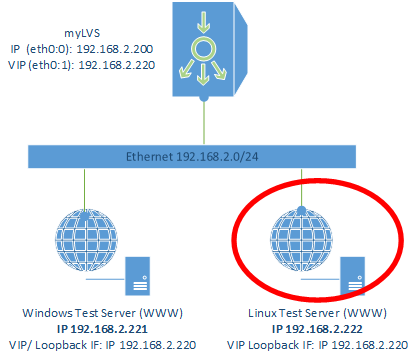Setup linux test client
|
Linux Test setup, it has been tested on
|
System settings to configure the loop back adapter
To make the change permanent you may edit /etc/sysctl.conf and add:
net.ipv4.conf.eth0.arp_ignore = 1 net.ipv4.conf.eth0.arp_announce = 2 net.ipv4.conf.all.arp_ignore = 1 net.ipv4.conf.all.arp_announce = 2
To make it applied immediately you can set:
root@myLVS-LinuxClient:~# echo "1" > /proc/sys/net/ipv4/conf/eth0/arp_ignore root@myLVS-LinuxClient:~# echo "2" > /proc/sys/net/ipv4/conf/eth0/arp_announce root@myLVS-LinuxClient:~# echo "1" > /proc/sys/net/ipv4/conf/all/arp_ignore root@myLVS-LinuxClient:~# echo "2" > /proc/sys/net/ipv4/conf/all/arp_announce
Add to /etc/rc.local to automatic load the loop back adapter:
/sbin/ifconfig lo:0 192.168.2.220 -arp netmask 255.255.255.255 up
ifconfig should look like:
root@myLVS-LinuxClient:~# ifconfig
eth0 Link encap:Ethernet HWaddr 08:00:27:89:f3:8d
inet addr:192.168.2.222 Bcast:255.255.255.255 Mask:255.255.255.0
inet6 addr: fe80::a00:27ff:fe89:f38d/64 Scope:Link
UP BROADCAST RUNNING MULTICAST MTU:1500 Metric:1
RX packets:1646 errors:0 dropped:2 overruns:0 frame:0
TX packets:356 errors:0 dropped:0 overruns:0 carrier:0
collisions:0 txqueuelen:1000
RX bytes:153233 (149.6 KiB) TX bytes:105801 (103.3 KiB)
lo Link encap:Local Loopback
inet addr:127.0.0.1 Mask:255.0.0.0
inet6 addr: ::1/128 Scope:Host
UP LOOPBACK RUNNING MTU:65536 Metric:1
RX packets:32 errors:0 dropped:0 overruns:0 frame:0
TX packets:32 errors:0 dropped:0 overruns:0 carrier:0
collisions:0 txqueuelen:0
RX bytes:1920 (1.8 KiB) TX bytes:1920 (1.8 KiB)
lo:0 Link encap:Local Loopback
inet addr:192.168.2.220 Mask:255.255.255.255
UP LOOPBACK RUNNING MTU:65536 Metric:1
Testing the loop back adapter
Switch off the first (Windows) client to make Linux as the only web server

The new myLVS overview should now show the disabled (Windows) server marked with a red cross:

Use a network client and open the URL http://192.168.2.220, we should now see the result of web02 (because web01 is off)
There should be the Linux/Debian default web page

Where to go next
- Go here: Setup summary
